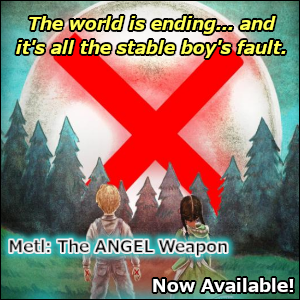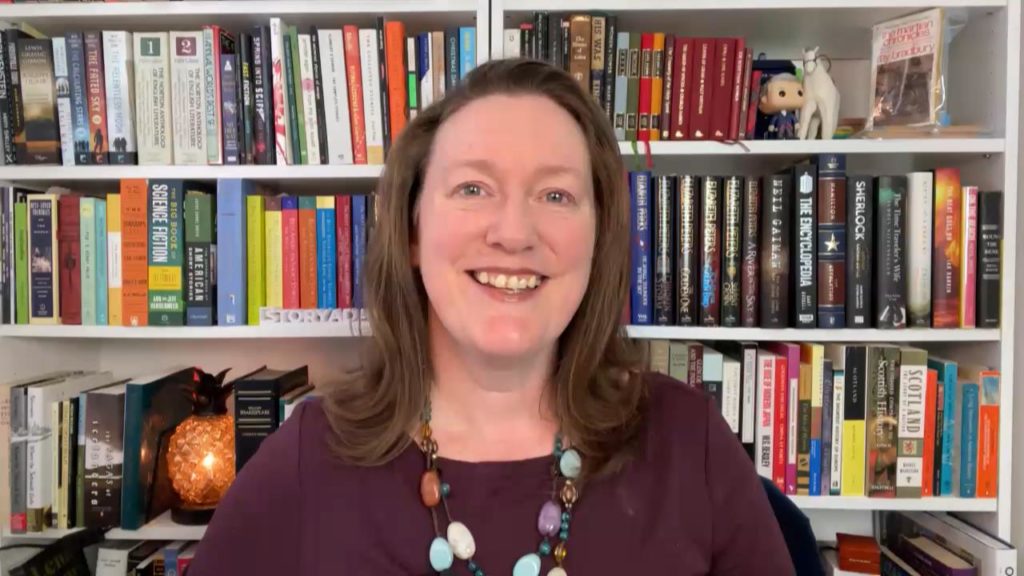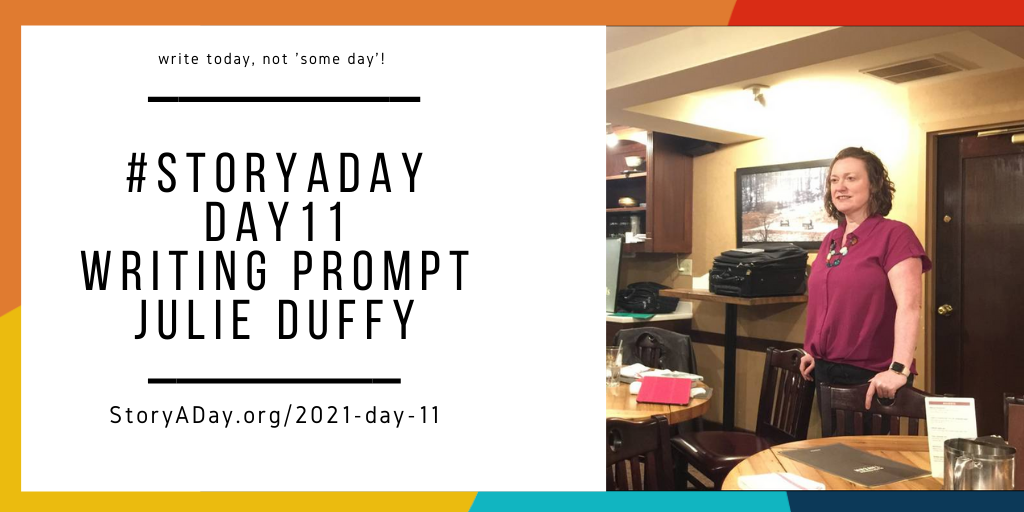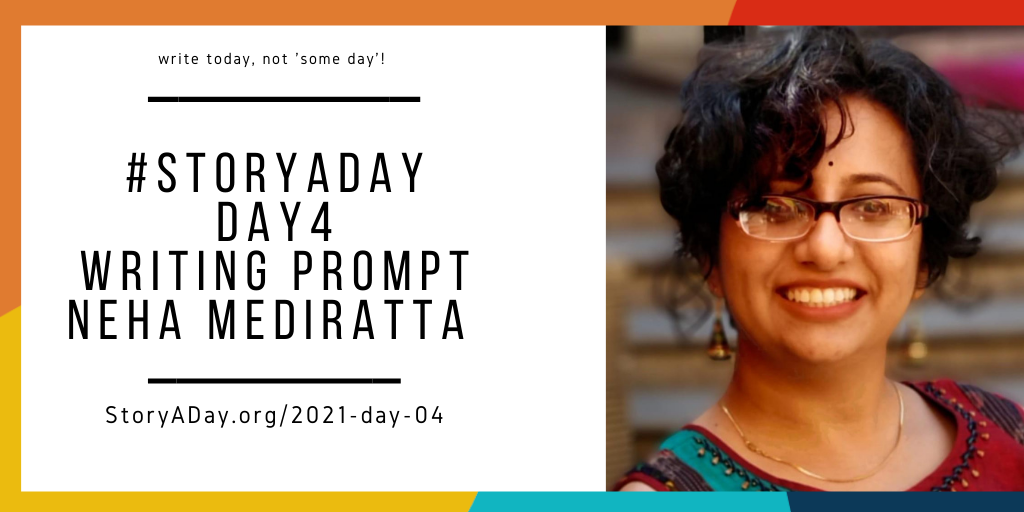Want to try your hand at writing a 100-word story but don’t know where to begin? Here’s a quick guide to get you started
Legend has it Hemmingway won a bet with his six-word short story: “For sale: baby shoes. Never worn.” His challenge was to move his audience with a few brief words. The ones he came up with show that being a man (or woman) of few words doesn’t stop you from saying a great deal with them.
The skill is in choosing the right words and allowing them to suggest far more than they say. The human brain is a miraculous thing, with endless capacity for filling in the gaps. The challenge of writing a piece of flash fiction is to say enough to convey a story which resonates, while allowing the reader to infer further layers of meaning.
It also requires you to trust yourself as a writer and to resist the temptation to over-explain.
In flash fiction writers aim to tell an entire story in a few short paragraphs. The story should have a beginning, middle and end and often finishes with a surprise or twist, which prompts the reader to reflect further.
“Baby Shoes” illustrates how it is possible to do this with the utmost brevity. Traditional jokes follow a similar format: a man walks into a bar, he says or does a few things and then there is a punch line.
«The most valuable of all talents is that of never using two words where one will do»
To boil a whole story down to a few sentences is hard, especially if you are used to writing longer stories or even full-length novels. But flash fiction is a brilliant exercise in restraint. Trying your hand at it can help even longer pieces of work become sparser and elegiac.
Thomas Jefferson famously said “the most valuable of all talents is that of never using two words where one will do.”
Writing flash fiction is a process of choosing the right words and making the ones you have chosen sing for their supper.
The following tips will help you consider how to make your 100 words speak volumes.
Think of a title
When you’ve got a limited word count, a good title can start to tell the story. “Something nasty in the woodshed” or “Skating on Thin Ice” alert the reader to a reveal or a disaster before you’ve even begun writing.
Make an immediate start
Your beginning should take the reader straight to the heart of the story, introduce the main characters, establish the setting and raise a question that will be answered by the end.
Keep it simple
Although you want to write a complete story, you do not have time for back-story or sub plots. Focus on a single scene in a particular moment of time.
Stick with a slim cast of characters
Ideally just one or two. If necessary, others can be mentioned or alluded to. Writing in the first person and the present tense also helps with economy of words.
Say it succinctly
Speech allows characters to encapsulate storylines and infer meaning you may not have time for with exposition. Do away with speech attributions too, if it’s clear who is speaking.
Make your words work
Think about how you can set the scene and convey emotion using single evocative words.
Shorten your sentences
Be creative with form. Use lists. Play with punctuation. You don’t need perfectly formed sentences. Sometimes a single word will suffice.
Take the reader on a journey
No matter how short, all stories need a sense of progression. Something must change by the end of it. The characters must have moved on from where they were at the beginning.
Introduce the unexpected
Surprise the reader. Show them something new. Give them something to take away from your story.
Edit
Once your story is written, see what you can take out without changing the sense of it. Strip out superfluous words so that what you are left with is the brilliant, evocative essence of your story.
Now you’re ready to write a 100-word story of your own! Make sure you enter our competition by submitting your story by May 1, 2022 here.
DEADLINE FOR ENTRIES NOW EXTENDED FOR CHILDREN’S CATEGORIES—ENTER BY MAY 20, 2022
***NOW CLOSED FOR ADULT ENTRIES***
Lizzie Enfield is the author of five novels and one non-fiction title who also works as a creative writing tutor and mentor elizabethenfield.com
Read more: Previous 100-word story competition winners
Read more: How to unleash your creativity
Keep up with the top stories from Reader’s Digest by subscribing to our weekly newsletter.
Sometimes writing a tiny story can feel harder than writing a novel.
Let’s discuss some tips for crafting “microfiction,” then write some 100-word stories together!
During the last stream, a subscriber requested that we go over how to write 100-word stories.
Watch what we did here, or scroll down for highlights.
How to Write a 100-Word Story
- Writing a super short story (a.k.a. “micro fiction” or “flash fiction”) can be surprisingly difficult
- It may take longer to write a novel than a 100-word story, but it still takes a lot of work to produce something good, and the guidelines are very different
- So let’s go over 3 tips on how to write 100-word stories, then write some together!
#1. Before you start: pick the kind of short story you want to tell
- For novels, the vast majority follow the same structure: introduce a character, have something bad happen to them, they overcome the conflict, and happy ending
- But for super short stories, there is a LOT more variety: since the reader is spending such a short time reading it, you can get away with stranger ideas
- Here’s a sampling of some 100-word story “genres” and examples for each:
- A snapshot (heavy on description/atmosphere)
- http://www.100wordstory.org/aunt/
- An anecdote (to make the reader think)
- http://www.100wordstory.org/improbabilities/
- An emotional piece (sad, happy, funny, surprise)
- http://www.100wordstory.org/maze-runner/
- A snapshot (heavy on description/atmosphere)
#2. As you write: start your story in the middle
- For novels, you usually want to start at the beginning, introduce a character, their normal life, blah blah blah
- But for super short stories, you don’t have the luxury of that since you only have 100 words: you need to jump right into the most important part
- Here’s an example of a story that jumps right in, not even telling us what the woman is diagnosed with: http://www.100wordstory.org/drive/
#3. When you’re done: edit even more harshly than usual
- For novels, you have tens of thousands of words, so it’s not a big deal if a few dozen or hundred aren’t absolutely necessary
- But for super short stories, you have to make EVERY word count, cutting everything that isn’t 100% necessary
- Some easy cuts are phrases like “there are/were,” weasel words like “very, almost, just, many,” not to mention unnecessary explanations/exposition
- Here’s an example of a story that leaves a lot out, but is still perfectly understandable to the reader: http://www.100wordstory.org/after-a-heartless-winter/
After that, chat voted on some images to inspire our own 100-word stories. We wrote a snapshot, anecdote, and emotional story for each.
Here’s what we wrote:
Image #1
A snapshot (heavy on description/atmosphere)
Looking at my younger self, I feel old and crusty. My skin was smooth and bright, dewey drops of the sun itself, eclipsed only by my long, dark hair. Every picture I see myself in, I’m sleeping, tired, yawning — naps were my concerts, and my best dates were with my pillow. I was told that I was sleeping my youth away, that I’d regret it when I got older. But now, looking at that girl I used to be, I’m not jealous of her skin or hair.
I used to sleep to dream, but now I just dream of dreaming.
An anecdote (to make the reader think)
When the mask first arrived, I refused to wear it. I didn’t want to see its gray, scarred skin covering my own, but my parents said I’d be ready one day. None of my friends wore theirs, preferring to get eye-swirls instead, so I decided the mask would stay hidden in the bathroom closet forever.
Forever turned out to be two weeks. One morning, it felt right to put the mask on. It fit perfectly, so much that it blended and melted right into my face. I didn’t even look any different, aside from the swirls it gave to my eyes.
An emotional piece (sad, happy, funny, surprise)
The whispers distract me as I sit at my desk. A face slowly hovering behind me, its gaseous form hissing into smoke and spiderwebs. It’s impossible to concentrate as its thin tendrils brush against my hair, poking against the back of my neck with its sharpened tips. I can’t do anything when it moves quickly, only endure, but when it stops for just a moment too long behind my ear.
SMACK!
I bring back my hand and look at the quivering fly, now paste in my palm, and scrape it into the trash. Finally, I can finish my math homework.
Combining Images 2 & 3
A snapshot (heavy on description/atmosphere)
The pillar of cloud grew thicker and stronger, its girth expanding to an intimidating size. The opening up above didn’t know if it could handle the monster it had expanded into, but the moisture of the rain made its penetration smooth and seamless.
Faster and faster the two clouds tumbled over each other, becoming one with the earth and sky. Their passionate yells thundered, sparks flying between them.
Until finally, the eruption. Millions of small, white balls poured down, crashing against the ground.
After the climax came stillness. The whirlwind of emotions faded — until the storm would brew again.
An anecdote (to make the reader think)
This is an emergency weather broadcast. We have just received word that totally-hot-and-young couple Stacy and Trent opened their tent after two hours of fervent love-making in the woods, releasing the heat of their passion into the air. The sudden warmth mixed with the stationary cold front, creating a supertornado now ravaging the northwest. Based on both meteorological data and Stacy’s first-hand reports, while the supertornado is the largest ever recorded, it’s still only about half the size of Trent’s “lightning rod.” Early interviews with those who lost their homes have resulted mostly in smiles and high-fives for the couple.
An emotional piece (sad, happy, funny, surprise)
Stacy snuck into Trent’s tent when everyone else was asleep. With only the light of their phones, they smiled at each other. Finally, they were alone together. They could do what their hearts, and other parts, had been begging them to do all day.
They held each other’s hand! Finally, the aching of their fingertips was quenched with the cool feel of the other’s skin. They leaned in close, to clasp the other hand too.
A loud zip stopped their lewd activity. Bible camp counselor Mr. Yortle stood there, opening their tent, the wrath of a tornado on his face.
Be sure to check out the video for a dramatic reading of the stories!
If you want to join us and help write a story by trolling in chat, or share your own writing for feedback, then we’d love to have you join us on Twitch.
And you missed the stream, you can still watch them on the YouTube channel or watch the full stream reruns.
Hope to see you next time, friend!

Looking for a writing activity that helps build student skills, but doesn’t take a full period? Try the 100 Word Story activity.
ESL teachers usually look for new writing prompts and warm-ups to help their students stay interested in learning English writing. 100 Word Story is a website, a writing challenge and a terrific writing idea for the ESL classroom.
Time Estimate
- 15-30 minutes
Introduction
The idea is simple: write a story with 100 words.
The topic is wide open.
The only rule, except for the word count, is that it must be a story, not a random collection of words.
Writing Example
The 100 Word Story website has many stories. Here is a wonderfully creative example by Carly Anderson.
Apartment Key
It was Sunday in October—the day he arrived at the hardware store and asked to have it cut, the day he fingered its nickel plated edges before placing it in her palm, before she asked if he was sure and then tucked it inside the zippered pocket of her purse, before they cha-chaed in Little Havana and spent the summer declaring thumb wars, before he lost his job and started smoking out on the fire escape, before she locked herself in the bathroom while he smashed her porcelain teacups, before she cried while abandoning it on the coffee table.
Extra Directions
Writing a coherent story is the big challenge of this activity. Encourage students to write a complete idea, rather than an unfinished story. Teach students to focus on one idea. To answer a question. To pose a question.
Teach writing?
Get the ebook Teach Essential Writing Skills. Transform the quality of EFL student writing by focusing on four essential skills. Click here for details about the ebook that should be part of every writing teacher’s resource library.
Save time. Teach well.
Cut your lesson prep time with this 240-page collection of ESL resources that stimulate language learning and critical thinking: awesome pair work speaking activities, logic puzzles, trivia, word games and much more. Simplify your lesson planning because teaching should be a joy, not a chore.
Skip to content
Today’s writing prompt encourages you to keep things short
The Prompt
Write a 100 word story inspired by an aphorism
Tips
Remember: the prompts are only here as inspiration if you need them. Some people decide to write to all the prompts no matter what (to force themselves to stretch), but you can play any way you want!
Writing a 100 word story is a wonderful way to warm up and get some writing done even on a day when you are busy. It’s not necessarily faster to craft a 100 word story than it is to dash off 1200 words, but it is incredibly satisfying, and it sharpens your word-choice skills.
Today I’m going to suggest that you choose an aphorism or proverb to inspire you story (here’s a handy collection).
You’ll need to choose a character who embodies (or defies) the message of the aphorism, pop them in a situation where they can take an action and, ideally, give us an idea of how they are changing through their experience.
100 words isn’t a lot, but I believe in you!
If you need some inspiration here is a site full of 100 word stories.
Julie Duffy
Julie Duffy is the Founder and Director of StoryADay.org. She began thus challenge in 2010 and is proud to have encouraged thousands of writers, since then. She never tires of hearing from writers whose StoryADay drafts turn into published stories, or gifts for friends, or other forms of art, so do please keep in touch!
Bingo!

Join the discussion: what will you do with today’s prompt OR how did it go? Need support? Post here!
Remember: I don’t recommend posting your story in the comments here (and I talk more about why not, here). Best practice: Leave us a comment about how it went, or share your favorite line from your story.
The Prompt
Write a story in exactly 100 words
The Author


Julie Duffy is a writer and the founder and host of StoryADay. She juggles and knits, though rarely at the same time.
Read A Book, Support An Indie

This year’s StoryADay May official bookseller is Reads & Company, a privately-owned indie bookseller in Pennsylvania. Any purchase from the site this month supports Reads & Co.
Leave a comment and let us know how you used the prompt, and how you’re celebrating!
The Prompt
Write a 1000 word flash fiction story that ends with the line: “That’s how a small cut in her finger led to the end of the world.”

The Author
Read A Book, Support An Indie

This year’s StoryADay May official bookseller is Reads & Company, a privately-owned indie bookseller in Pennsylvania. Any purchase from the site this month supports Reads & Co.
Leave a comment and let us know how you used the prompt, and how you’re celebrating!
This month’s theme at StoryADay is “Triumph!”
Mindset is incredibly important in the life of the writer, and that means we need to celebrate every little win.
The fastest way to do that, is to make it easy to get to the win. So, today’s prompt is to write and finish a story in 100 words and I know you can do it.
The Prompt
Write 100 words about a character who is famous or infamous for one moment in their life.
Tips
You can read some 100 word stories here to get inspired.
You’ll have to work hard to pack an emotional punch into 100 words, but I know you can do it!
You can read the tips I’ve posted previously for 100 word stories here, here, or here
If you share you story somewhere (and here’s why you might not want to) post a link here so we can come and read it.
Leave a comment to let us know what you wrote about today, and how it went!
How did you get on yesterday? Did you write a story?
Remember, set your own rules, and stick to them. If you miss a day, don’t try to catch up. Just keep moving forward!
The Prompt
WRITE A STORY in 100 words
What can you do in 100 words? A surprising amount.
Just don’t be surprised if today’s story takes just as long as yesterday’s. Short and sweet isn’t necessarily quick!
Go!
Check back every day for more prompts, and don’t forget to come back and leave a comment to celebrate your writing successes, every day!
Don’t expect this to be a super-quick exercise…
Today you’re going to write a were a story in 100 words. This also known as a Drabble.
The Prompt
Write a story in 100 words
- With a story this short, you have about 25 words to open the story and about 10 words at the end to wrap things up. The rest of the words hold the meat of the story.
- Often it’s easier to write the story a little longer and cut it down.
- Being concise doesn’t mean leaving out detail. You just have to make sure (probably on a rewrite) that every word is doing double duty. If you’re describing something make sure it reflects the mood of the character as well, for example.
- Don’t expect this to be a super-quick exercise. A hundred words is not many and it can be difficult to shoehorn a story into such a small space. You are going to need to build in time to revise it.
- The good news is that writing a 100 word story and revising it still takes less time than writing a 3,000 word story.
- If you need some inspiration check out the site 100 Word Story. Read a few to get the idea of what can be done with so few words.
Go!
Post a comment to let us know how you’re getting on, share your story, share tips or ask for help!
Ready for another break? This exercise is ‘easier’ than writing a 5,000 word story, only because it takes a little less time. It does, however, take a lot more time than any average 100 words in the middle of a longer story.
Crafting a complete story in 100 words is not easy. It is, however, quite satisfying.
The Prompt
Write a story in exactly 100 words
Tips
- Super-short stories have to pack an emotional punch in very few words. Concentrate on one moment, one incident, that holds huge significance for a character: the moment they first made eye contact with their baby; seeing the first crocus of spring after a hideous winter full of drama and despair; standing on stage in the moment of silence before the applause starts…
- You’ll want to save the majority of your words for the build-up to the climax. Think about how many words you can afford to spend setting the scene (maybe 25?) and how many you want for the resolution (10?). Can you create a resonant story in 65 words?
- Choose adjectives carefully. You don’t have much room.
- Make words do double duty. Instead of saying ‘he walked across the room, shaking with rage’, say ‘he stalked away’, saving five words.
- Don’t feel you have to hit 100 words on the first pass. Write the story, then go back through and intensify things by making your verbs more active and pruning as much dead wood as you can.
- Imply as much as you can. Leave gaps. Let the reader work a bit.
GO!
Post a comment at the blog to let us know you’ve written today, or join the community and post in the Victory Dance Group.
So how did you get on yesterday?
Did you write? Did you leave a comment on the blog post, or do your Victory Dance?
Whatever you managed yesterday, congratulations and I’m glad you’re back for more!
Continuing the theme of ‘assuming you have more than one idea of a time’ this week, I’m giving you another length-based writing assignment.
The Prompt
Write A Drabble (A Story Of Exactly 100 Words)
Tips
- Just because you’re limited to 100 words, don’t think this is going to be any less a creative exercise than any other story you write this month.
- Allow as much time for this as you would for a longer story.
- Don’t be surprised if you find yourself writing more and then paring the story back.
- It’s very common to cut out lots of words from the start of short stories. Sometimes we have to write a lot to figure out where the story really starts. Don’t be afraid to ‘start late’.
- You can’t explain much in a 100 word story. Allow the reader to fill in some blanks. Stories of this length are very much a collaboration between reader and writer.
Go!
It’s almost Thanksgiving here in the US (for those non-US people: it’s a Big Deal with lots of travel and turkey and non-productivity).
So, in an effort to keep you writing but not overwhelm you, this week I’m assigning a Drabble, a 100 word story.
The Prompt
Write A 100 Word Story
Tips
- 100 word stories sound like they won’t take up much time but they will take more than you think.
- Remember that you don’t have much time/space to create your story. This stops you from including too much backstory, any rambling, or losing your way in the middle. Keep your mind firmly on the end.
- Do write more than 100 words if you need to, then trim.
- If you find yourself writing fewer than 100 words, look back and see if you can beef it up with pointed dialogue, expressive description or more of your main character’s emotions.
- You can make the theme of the story ‘Thanksgiving’, ‘gratitude’ (or lack thereof), or something completely different if inspiration strikes.
Go!
One of the first internet-era writing challenges I ever attempted was over at 100words.net . The challenge was to write 100 words (exactly) every day for a month (I think the brain behind the idea originally did it for 100 days, but by the time I discovered the challenge it was a calendar month).
It was hard, but it was freeing too. And it was my experience with those limitations (and the rhythm of writing every day for a month) that set me thinking about my own StoryADay challenge, years later.
The Prompt
Write 100 words. Exactly 100.
Tips
- It can be helpful to think of this as an exercise, not a story
- Start with an experience of your own. As you whittle your words and ideas down to exactly 100, you will inevitably be creating fiction.
- 100 words isn’t much. You don’t have room for traditional story structure, or to worry about all those writing rules you’ve been working to absorb. Just write.
- If you need a more specific prompt, write about something you did yesterday morning. Give me details, colors, emotion.
Go!
Oh, and thanks to everyone who left comments or got in touch about the five-a-week prompts in September. The deal was that someone who commented would win a copy of my Time To Write Workshop. And (drumroll please) the winner is: Sarah Cain!! (I used the random number generator at Random.org — and got ridiculously excited waiting for the winning number to appear! Congrats Sarah. Hope it helps!
Write A Drabble (100 word story)
Write A Drabble
A ‘drabble‘ is a short story of exactly 100 words. We’ve already done a 55 Fiction day, so this drabble day should be a doddle!
We use cookies on our website to give you the most relevant experience by remembering your preferences and repeat visits. By clicking “Accept”, you consent to the use of ALL the cookies.
Do not sell my personal information.
Home > Free Fall
This is an example of how to write a short story about a free fall. It provides practice for the writing section of the Cambridge English B1 Preliminary exam.
Please note for the real test, it isn’t a gap-fill exercise. You will write a short story using about 100 words.
B1 Preliminary Writing Part 2 Short Story: Free Fall
Your English teacher has asked you to write a story.
Your story must begin with this sentence: It was dangerous, but I knew that I had to do it.
Listen to the Short Story.
More exercises available:
We add reading and writing exercises on a regular basis. Why not bookmark our site, so you can come back to practice anywhere or at any time of the day?
- Reading Part 1 & 2
- Reading Part 3 & 4
- Reading Part 5 & 6
- Writing Part 1
- Writing Part 2
Part 1 — Read five real-world notices, messages and other short texts for the main message.
Part 2 — Match five descriptions of people to eight short texts on a particular topic, showing detailed comprehension.
Part 3 — Read a longer text for detailed comprehension, gist, inference and global meaning, as well as writer’s attitude and opinion.
Part 4 — Read a longer text from which five sentences have been removed. Show understanding of how a coherent and well-structured text is formed.
Part 5 — Read a shorter text and choose the correct vocabulary items to complete gaps.
Part 6 — Read a shorter text and complete six gaps using one word for each gap.
Write about 100 words, answering the email and notes provided.
Write about 100 words, either an article or story.
Articles
Short Stories
In addition, we add listening and speaking exercises in order to practise for this part of the B1 Preliminary test.
- Part 3 — Listening
- Part 4 — Listening
- Speaking
Part 3 — Gap-Filled Exercise
Part 4 — Multiple Choice Exercise
The B1 Preliminary Speaking test has four parts and you take it together with another candidate. There are two examiners. One of the examiners talks to you and the other examiner listens.
The more words you encounter and understand, the broader your day-to-day vocabulary will become. Our word games and puzzles are an excellent way to help to reinforce spellings in your mind.
- Crosswords Puzzles
- Word Searches
- Word Puzzles
Especially helpful are exercises that are focussed on a theme or topic as these provide word retention practice so you can be confident to read, write, speak and listen successfully.
- Vocabulary Skills
- Grammar Skills
- Writing Skills
- Speaking Skills
Cambridge English Examinations:
Cambridge English exams are designed for learners at all levels from the pre-intermediate level Cambridge English: Key (KET) to the very advanced level Cambridge English: Proficiency (CPE). These exams give candidates proof of their ability to use English in a wide variety of contexts, relevant to work, study and leisure activities.
A2 Key | B1 Preliminary | B2 First















